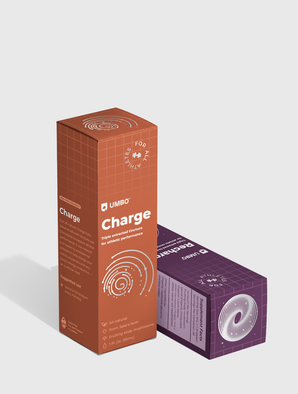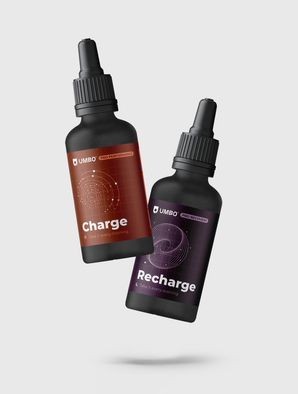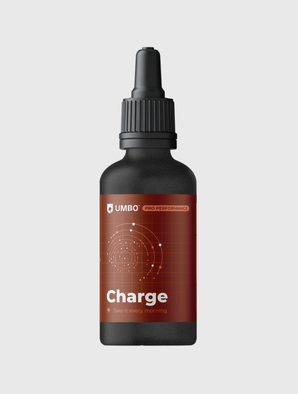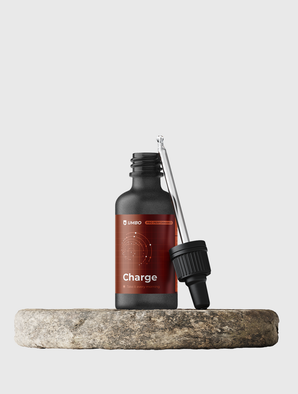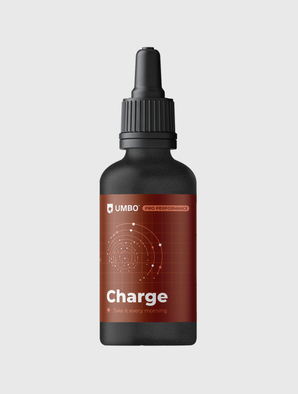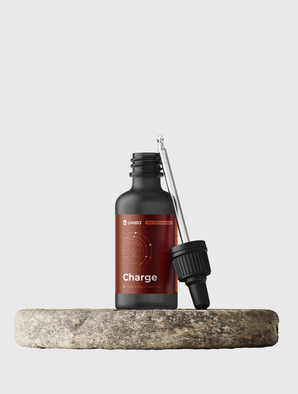Forget Collagen Peptides — Meet Nature's Vegan Peptides
Imagine you're at the peak of your training cycle. Your body is working harder than ever, but recovery seems to take longer each time. Now picture finding a natural, plant-based solution that not only helps you bounce back faster but also enhances your overall performance. This isn't science fiction – it's the power of mushroom-derived peptides, nature's own vegan performance enhancers.
What Are Peptides, and Why Should Active People Care?
Think of peptides as your body's tiny messengers. They're small chains of amino acids that help coordinate various functions in your body, from muscle repair to energy production. Recent research has shown these bioactive compounds play crucial roles in enhancing athletic performance and recovery. While synthetic peptides and animal-based peptides, like collagen peptides, have both made headlines in the sports world, nature has been perfecting these compounds for millions of years – particularly in mushrooms.
The Oldest "New" Entrant to the Peptide Landscape
The world of performance-enhancing peptides is vast and sometimes controversial. Most peptides used in sports today come from either synthetic laboratories or animal sources. Common animal-derived peptides are extracted from bovine collagen, fish proteins, or egg whites. But there's a powerful alternative that's both natural and vegan: Mushroom-derived peptides.
For athletes following a plant-based lifestyle — or anyone concerned about the environmental and ethical implications of their supplements — mushroom peptides offer a compelling solution. These fungi-based compounds provide similar benefits to animal-derived peptides but come from sustainable, vegan sources that can be grown with minimal environmental impact.
Here are some of the common uses of peptides that might be able to be replaced by mushroom peptides:
1. Recovery Peptides
While BPC-157 and TB-500 have gained attention for their healing properties, mushrooms like Reishi contain natural peptides that support tissue repair without the need for synthetic alternatives.
2. Performance Peptides
Many athletes seek out peptides like AOD-9604 for performance enhancement. Natural alternatives exist in mushrooms like Cordyceps and Lion's Mane, which contains compounds that support both physical and mental performance.
3. Immune System Peptides
Thymosin peptides are popular for immune support. Many functional mushrooms naturally contain immunomodulating peptides that can provide similar benefits.
4. Growth Hormone Peptides
Studies have shown that natural alternatives exist to synthetic options like CJC-1295 and Ipamorelin. There are lots of downsides to synthetic peptides, though. And certain mushrooms have been found to naturally contain compounds that can support the human body's production of growth hormone.
The Mushroom Peptide Advantage
What makes mushroom peptides special? Unlike synthetic alternatives or animal-derived peptides, mushroom-derived peptides come packaged with other beneficial compounds that work together, creating what scientists call an "entourage effect." As a vegan source of bioactive peptides, mushrooms offer a unique advantage: They are sustainable, ethical, and their production has a significantly lower environmental footprint compared to animal sources or synthetic manufacturing processes.
Key Benefits for Athletes
1. Enhanced Recovery
Clinical studies have shown that functional mushrooms like Reishi contain peptides that support your body's natural repair processes. Athletes who incorporate mushroom supplements into their routines often find that their muscles recovere more quickly between games or intense training sessions, allowing them to maintain peak performance more easily.
The peptides in these mushrooms work by:
- Supporting natural inflammation response
- Enhancing nutrient delivery to muscles
- Promoting healthy sleep patterns, when recovery happens most
2. Stress Adaptation
Research has demonstrated that adaptogens found in medicinal mushrooms help athletes maintain balance during intense training periods. These substances (also called "adaptogens") help your body handle stress better, allowing you to train harder and recover faster.
For example, athletes who add adaptogenic functional mushrooms to their routines often are better able to maintain consistent energy levels throughout their training sessions, rather than experiencing the "expected" afternoon energy crash.
3. Natural Energy Support
Rather than the jittery boost from caffeine or pre-workout supplements, mushroom peptides help optimize your body's energy production at the cellular level (References[17]). This translates to sustained energy throughout your training sessions and competitions.
4. Immune System Strengthening
Heavy training can temporarily suppress your immune system, making you more susceptible to illness. Studies show that mushroom peptides, particularly those from Reishi and Turkey Tail, act as immunomodulators (substances that help regulate immune function), helping maintain your health during intense training periods.
Nature's All-Stars: Top Functional Mushrooms for Athletes
Cordyceps
- Increases oxygen utilization
- Supports energy production
- Enhances endurance and stamina
Reishi
- Supports stress adaptation
- Promotes better sleep quality
- Helps maintain immune function
Turkey Tail
- Boosts immune system strength
- Provides antioxidant support
- Aids in recovery
Lion's Mane
- Supports mental clarity and focus](References[12])
- Aids in nervous system recovery
- Reduces exercise-induced stress
Getting Started Safely
While mushroom peptides are natural, it's important to approach them thoughtfully. Research supports the importance of proper implementation and professional guidance. Here's how to begin:
1. Start by understanding the world of mushrooms
We wrote a free e-book exactly for this purpose: Check out the Functional Mushroom Playbook here. Download it for free. It will give you a a good understanding of what functional mushrooms are and what they can do for you.
2. Look for fruiting body mushroom products
In an ideal world, we would be able to reliably find high-quality products that use the whole mushroom (fruiting body and mycelium together). There are often different sets of beneficial compounds in each part of the mushroom. But production techniques today do not allow for reliable to good extraction of the mycelium — the great majority of the time, you are getting the substrate that the mushroom mycelium is grown on, and not the mushroom mycelium itself. So for now, look for products that contain fruiting body mushrooms.
3. Consult the professionals
Consult with healthcare providers who understand both sports nutrition and functional mushrooms. They can help you integrate these supplements into your training routine effectively.
4. Listen to Your Body
Start slowly and pay attention to how your body responds. Like any training adjustment, your body needs time to adapt to new supplements.
5. Buy high-quality products
Look for products that:
- Use organically-grown or wild-harvested functional mushrooms
- List the specific mushroom species used
- Contain a meaningful amount of each functional mushroom (not just a little sprinkling of mushrooms)
Sustainability and Ethics with Peptides
Choosing mushroom peptides isn't just about personal performance — it's about making a sustainable choice for the planet. While synthetic peptide production can involve harsh chemicals and animal-derived peptides raise ethical concerns, mushroom cultivation is remarkably sustainable:
- Environmentally friendly, often using minimal resources
- Sustainable and renewable
- Cruelty-free
- Capable of being grown locally, reducing transportation impacts
For athletes looking to minimize their environmental footprint while maximizing their performance, mushroom peptides represent an ideal solution that aligns personal goals with planetary health.
A Natural Path Forward
The future of athletic performance doesn't have to rely on synthetic compounds or animal products. Nature has provided us with powerful tools in mushroom-derived peptides.
As an athlete, your mind and body are your most valuable assets. Scientific evidence continues to support the benefits of mushroom-derived peptides for athletic performance, offering a natural, time-tested way to support your performance goals while maintaining long-term health. Whether you're a weekend warrior or a professional athlete, these natural compounds can be a valuable addition to your training routine.
Remember, success in athletics isn't just about training harder — it's about training smarter, and sticking to it. Research increasingly shows that mushroom peptides offer a bridge between peak performance and natural, sustainable health support. By choosing mushroom peptides, you're not just investing in your performance – you're choosing a sustainable, ethical path to athletic excellence.
* Note: This article is based on current scientific research and studies. Always consult with healthcare professionals before starting any new supplement regimen.
Sources and further reading:
- Bioactive Peptides and Other Immunomodulators of Mushroom Origin - NIH National Library of Medicine
- An Updated Review of Bioactive Peptides from Mushrooms in a Well-Defined Molecular Weight Range - NIH National Library of Medicine
- Bioactive Peptides from Edible Mushrooms—The Preparation, Mechanisms, Structure—Activity Relationships and Prospects - MDPI
- The Five Best Peptides for Athletes (Backed by Science) - Jay Campbell
- The Best Peptides For Healing - Muscle and Brawn
- Adaptogens: The Secret Weapon for Athletes - TheHealthBeat
- The Ultimate Sports Nutrition Guide for Athletes and Coaches - Precision Nutrition
- Bioactive Peptides from Edible Mushrooms—The Preparation, Mechanisms, Structure - NIH National Library of Medicine
- The role of protein hydrolysates for exercise-induced skeletal muscle recovery and adaptation - Nutrition & Metabolism
- Effects of protein supplements on muscle damage, soreness and recovery of muscle function and physical performance: A systematic review - NIH National Library of Medicine


